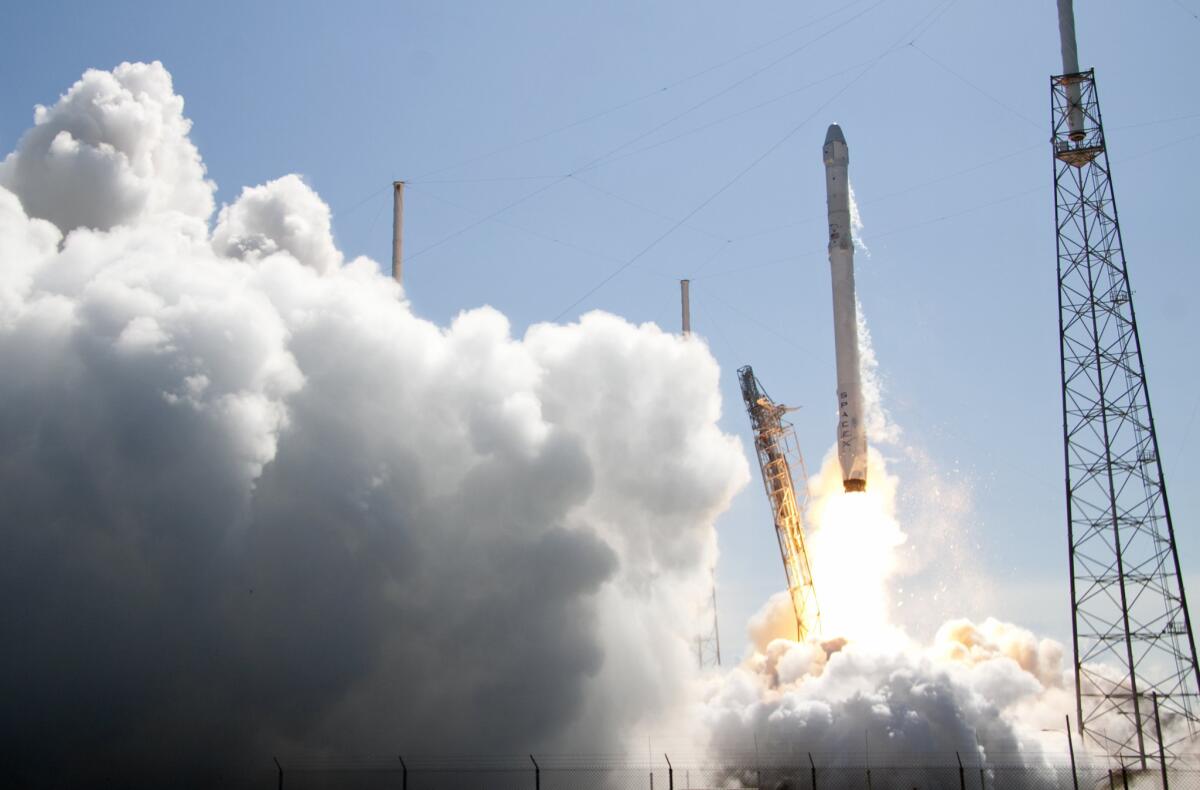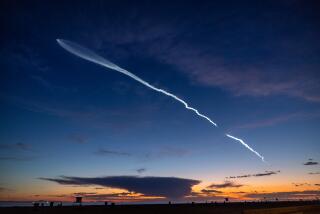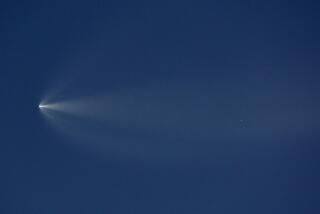Air Force certifies SpaceX to compete for military launches

The Falcon 9 SpaceX rocket lifts off at Cape Canaveral last month.
After a two-year effort, entrepreneur Elon Musk and his upstart company SpaceX won approval from the Air Force on Tuesday to launch the military’s most critical satellites.
The approval means that SpaceX can now compete for Pentagon contracts against a joint venture owned by aerospace giants Boeing Co. and Lockheed Martin Corp., which has had a monopoly on military satellite launches — many of them top secret — since 2006.
“This is a very important milestone for the Air Force and the Department of Defense,” said Secretary of the Air Force Deborah Lee James. “SpaceX’s emergence as a viable commercial launch provider provides the opportunity to compete launch services for the first time in almost a decade.”
The first opportunity for Hawthorne-based SpaceX to go head-to-head against the Boeing-Lockheed venture could come in June when the Air Force is expected to ask for bids to launch a GPS satellite.
James predicted that the addition of SpaceX as a military launch provider would drive down costs and improve “our military’s resiliency.”
SpaceX has been trying for years to break the lock that the Boeing-Lockheed venture has had on the military launch contracts. To gain part of the business, the Air Force had required SpaceX to prove it could reliably launch the military’s most important satellites — a process called certification.
The Air Force said the certification effort cost more than $60 million and involved 150 people. Among the requirements were three flight demonstrations, 21 major subsystem reviews and 700 audits.
“This is an important step toward bringing competition to national security space launch,” Musk said Tuesday in a statement. “We thank the Air Force for its confidence in us and look forward to serving it well.”
Boeing and Lockheed once competed against each other for the military launches. But in 2006 the two companies joined forces and created a joint venture known as United Launch Alliance.
Since then, the cost of launching spy satellites and other military spacecraft has become so great that the missions now rank among the nation’s most expensive weapons programs.
The Government Accountability Office estimated last year that the average cost for each launch using Boeing and Lockheed rockets had soared to $420 million per mission. Executives at United Launch Alliance dispute that figure, saying the average cost is far less.
Musk has said SpaceX can launch a military satellite for less than $100 million.
Last year, Musk filed a lawsuit against the Air Force, challenging an expensive and exclusive block-buy contract the military gave to United Launch Alliance for more than two dozen satellite launches. Musk agreed to drop the lawsuit in January after the Air Force agreed to open more launches to competition.
SpaceX already has won numerous contracts from NASA, including a $1.6-billion contract to ferry cargo to the International Space Station. Last year, the space agency awarded SpaceX and Boeing separate contracts for flying astronauts to the space station.
United Launch Alliance has blasted more than 90 satellites and other spacecraft into orbit. It has never had a failure.
Twitter: @melodypetersen







